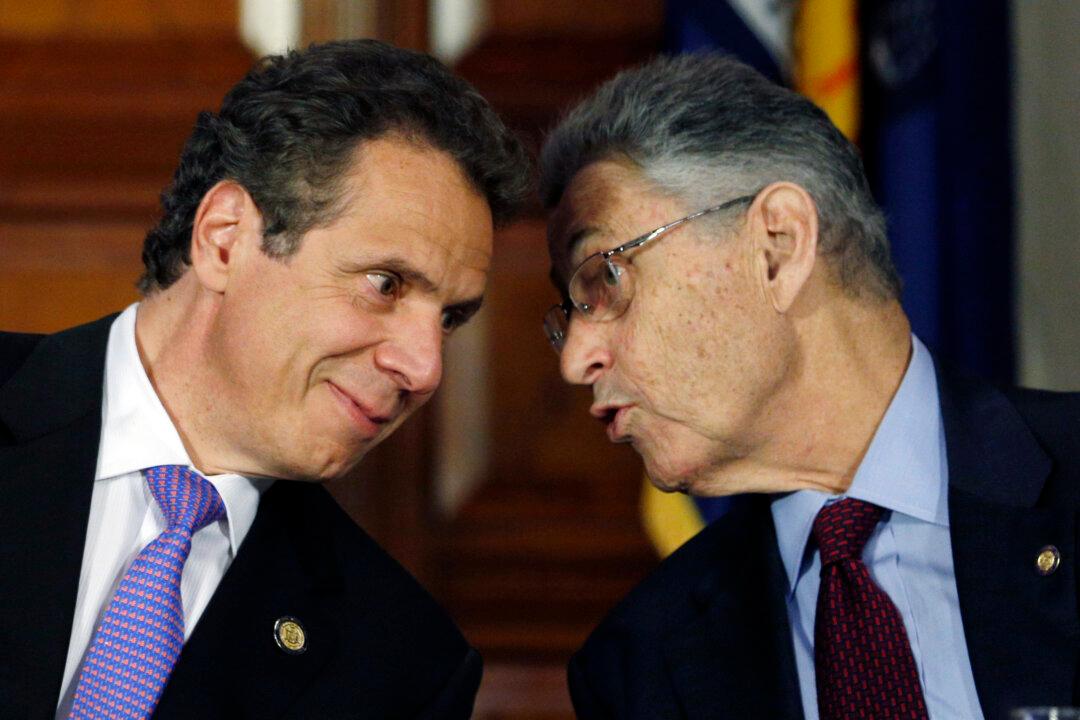When federal prosecutors’ arrest of Sheldon Silver revealed that he was part of negotiations with New York governor Andrew Cuomo to shut down an anti-corruption panel Cuomo established in 2013, it raised questions about whether Cuomo and the panel had any knowledge of Silver’s misdeeds.
Legal experts say that there is no current evidence to suggest Cuomo did. But during a public event at the New York Law School on Friday, Preet Bharara, federal prosecutor at the Southern District of New York--the office that investigated and charged Silver--had strong words for the powers-that-be in Albany: concentrated among Cuomo, State assembly member Silver, and State Senate majority leader Dean Skelos.
“[I]f yesterday’s charges are proven true,” Bharara said, “and at least one of the proverbial three men in a room is deeply compromised, how can we trust that anything that gets decided in Albany?”
Shortly after the panel, known as the Moreland Commission, shut down in March 2013, Bharara took up the Commission’s records, and has been investigating Cuomo’s role in the shutdown.
The criminal complaint charging Silver with corruption and bribery notes that some records from the Commission aided in the federal authorities’ investigation of Silver, but did not elaborate on their investigation of Cuomo.
At a press conference Thursday, Bharara also said he would continue to investigate corruption in Albany, but declined to say who was his next target.
If the governor had known that the Commission was getting close to finding out about Silver’s wrongdoing and disbanded it in order to protect Silver, then Cuomo could be charged with obstructing justice, said Gerald Lefcourt, a criminal defense attorney who owns a firm specializing in white collar criminal cases.
The prosecution would have to prove Cuomo agreed to shut down the Commission specifically to prevent further investigation into Silver’s finances. Lefcourt said such a case is “unheard of.”
Could Silver plead guilty and surrender information about Cuomo’s involvement, in exchange for a more lenient sentence? Jennifer Rodgers, a former prosecutor with the Southern District of New York, said that if Silver is willing to become a full-fledged cooperating witness, the prosecutors would be interested in going after a big target like Cuomo.
But Silver would likely have to agree to testify in court and plead guilty, said Rodgers, who is also executive director of the Center for the Advancement of Public Integrity at the Columbia Law School. “With the Southern District of New York office, they have an all or nothing proposition,” she said. If he agrees to those conditions, the prosecutors may dramatically reduce his sentence.
But based on the criminal complaint, Rodgers doesn’t see evidence that Cuomo was involved with Silver’s dealings.
Given that it has been more than nine months since federal prosecutors began their probe into the Commission’s shutdown, it is notable that they have not come forward with allegations of wrongdoing on Cuomo’s part, said political expert and dean of the Baruch College School of Public Affairs, David Birdsell.
Birdsell said the legal question remains over who had ultimate authority over the Commission. Did the governor have control over the panel, or “is it instead a commission that is authorized by the governor, then turned loose and made independent, precisely to escape the constraints of direct influence by the governor or any elected official? If it’s that kind of a commission, then maybe the governor doesn’t have the authority to disband it,” he said.
The Commission’s end also raises ethical questions, particularly if Cuomo was pressured by Silver to shut it down, Birdsell added. “Did Silver approach him and say, ‘I’m going to hold up the machinery of government, unless you shut this down’?”
Silver would have the political leverage to make such a demand, putting the governor in a difficult position. But right now, there simply is no evidence to show this conversation happened, Birdsell said.





